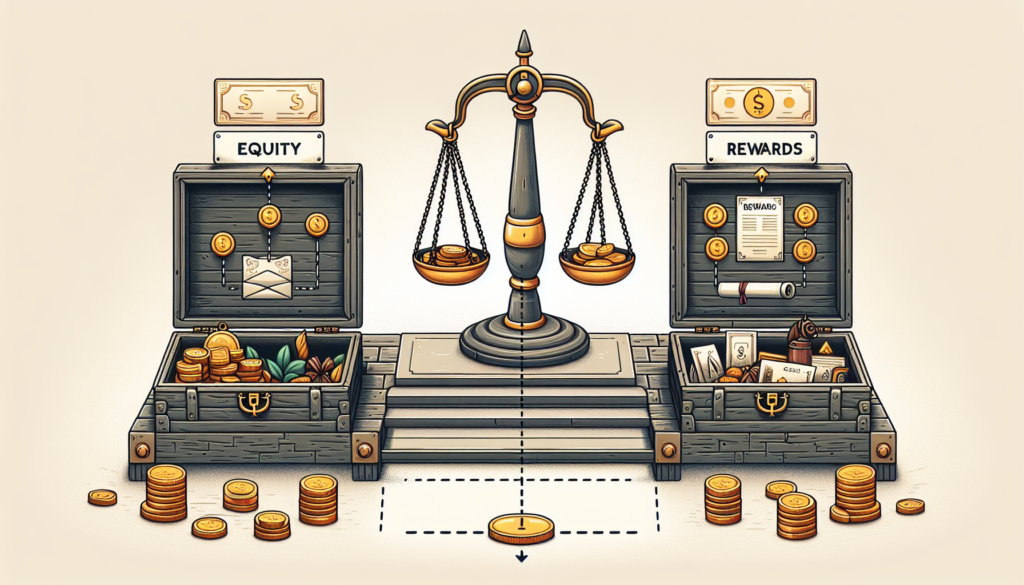For retail investors looking to explore alternative investments, crowdfunding offers an intriguing way to support startups, small businesses, and creative projects. But not all crowdfunding models are the same. Two of the most popular types are equity crowdfunding and rewards-based crowdfunding. Understanding the differences between these models can help investors choose the right approach for their financial goals and risk tolerance.
Equity Crowdfunding: Ownership and Potential Returns
Equity crowdfunding allows investors to contribute capital to a business in exchange for ownership stakes or shares in the company. This model provides an opportunity for investors to benefit from the company’s success through dividends or an increase in the company’s valuation over time. It’s essential to understand that equity crowdfunding is akin to venture capital investing but accessible to non-professional investors.
One important aspect to consider is the potential for high returns. If the company grows significantly, early investors can see substantial gains. However, this comes with the risk of loss, as many startups fail to scale or achieve profitability. Therefore, careful due diligence is essential when investing via equity crowdfunding platforms.
Equity crowdfunding gained traction after the JOBS Act was passed in the United States, which allowed non-accredited investors to participate in these types of investments. Platforms such as SeedInvest, Crowdcube, and WeFunder facilitate these transactions, making it easier for businesses to raise capital and for investors to find opportunities.
This trend indicates that more businesses are leveraging equity crowdfunding to access a broader pool of investors. However, it also means that investors need to be vigilant about the companies they choose to support, as the lack of liquidity and the high-risk nature of startups make this a challenging investment landscape.
Rewards-Based Crowdfunding: Non-Financial Incentives
Unlike equity crowdfunding, rewards-based crowdfunding does not offer financial returns. Instead, investors receive non-monetary rewards such as early access to a product, limited-edition items, or recognition. This model is popular among creative projects, tech startups, and social causes where the backers are more interested in supporting a vision or gaining access to a unique product.
The primary appeal of rewards-based crowdfunding lies in its simplicity and low risk. Contributors are typically passionate about a project or product and are willing to support its creation without expecting financial dividends. However, while the risk of financial loss is lower, there is still the possibility that a project might not deliver as promised or face delays.
This model has been especially useful for entrepreneurs who need seed funding without diluting their ownership or taking on debt. It allows creators to gauge market interest and gain invaluable feedback from early adopters, which can be crucial for refining a product before a full-scale launch.
Retail investors may find it interesting that rewards-based crowdfunding can also serve as a testing ground for future equity crowdfunding campaigns. A successfully funded rewards campaign can validate market demand and potentially lead to further investment opportunities through equity crowdfunding.
Choosing the Right Approach
Each crowdfunding model comes with its own set of advantages and risks, making the choice highly dependent on the investor’s objectives and risk appetite. For those looking to gain a financial return and willing to accept higher risk, equity crowdfunding offers a pathway to potentially lucrative investments. On the other hand, investors who are passionate about specific projects or products and prefer lower risk may find rewards-based crowdfunding more appealing.
It’s essential to understand that the regulatory landscape for these models also differs. Equity crowdfunding is subject to stringent regulations to protect investors, requiring platforms to ensure transparency and due diligence. Conversely, rewards-based crowdfunding is less regulated, focusing more on the contractual agreement between the project creator and the backer.
Investors should also consider the success rates and typical timelines for returns. Equity crowdfunding investments typically require a longer-term commitment, as startups may take years to generate significant returns. In contrast, rewards-based crowdfunding projects usually have shorter timelines, with backers receiving their incentives once the project is completed or the product is launched.
Both models have contributed substantially to the democratization of investing and funding. However, understanding the nuances of each can help investors make better-informed decisions tailored to their individual financial goals and interests.
In summary, equity and rewards-based crowdfunding represent two distinct pathways for retail investors to engage with alternative investments. Equity crowdfunding offers the potential for financial returns but comes with higher risks and regulatory considerations. Rewards-based crowdfunding, while lower risk and simpler, provides non-financial rewards and the satisfaction of supporting a creative venture. By understanding these differences, investors can better navigate the crowdfunding landscape and choose the approach that aligns with their investment strategy.

